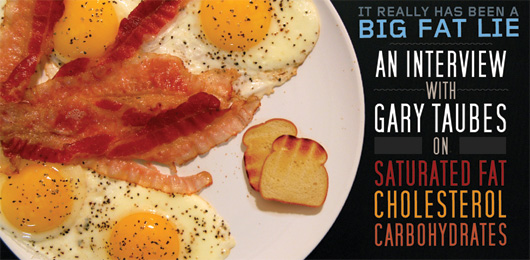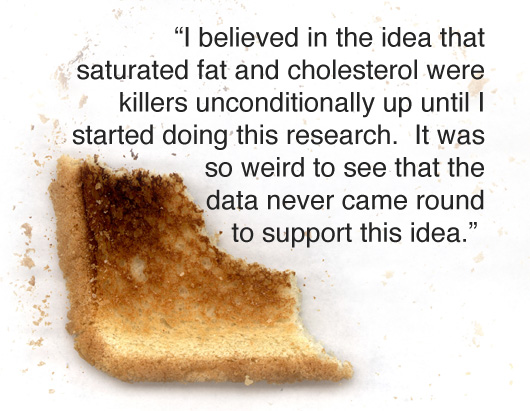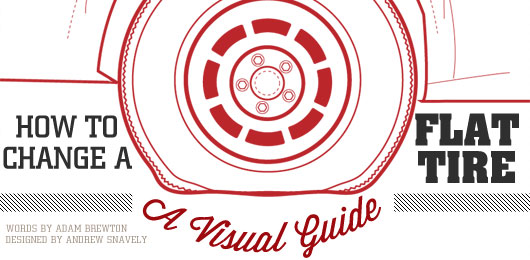I originally did this interview to help my clients maintain their fat-loss. On the nutrition side of things I use low-carb diets to help people drop a lot of body fat without being hungry. However, there is one huge problem with low-carb diets – other people’s ill-informed opinions.
Here’s a typical conversation:
Coworker: “WOW! You look fantastic – like you’ve dropped 40 pounds. You never even had a neck before. How did you do it?”
My client: “I’ve been eating low-carb and lifting weights and doing intervals.”
Coworker: “WTF!? Are you trying to kill yourself!? Low-carb diets are the most dangerous things ever – all that fat and cholesterol is going to make your heart explode!”
My client usually says nothing, and inside a very negative conversation begins. “Hmmm… What if they’re right? What if I am trading my health for a great body? What if all this steak and eggs really is going to kill me?”
The problem is that their coworker is sincere, BUT the information is sincerely wrong.
They literally have NO IDEA WHAT THEY ARE TALKING ABOUT whatsoever. They’ve probably never read and comprehended primary research on nutrition in their entire lives. (By the way, almost none of the students in my 400 level nutrition classes had ever read a single study on their own. They were just parroting what the food pyramid said.)
Very few people understand statistics, research design, biochemistry, or anything else that makes reviewing research worthwhile. As a nerd, I keep two different biochemistry textbooks in my office to read for fun.
Most people get their opinions from other people who get their opinions from other people who got their opinions from the media, and the people who report on health and exercise are not usually scientifically literate. They will write up whatever the spokesperson for the study has to say and will almost never critically evaluate the study. (For an example read this on red meat and this on a sham diet study.)
So what I did for my clients was arrange an interview with Gary Taubes. He’s one of the few people on planet Earth who has reviewed the entire field of literature on public health, nutrition and obesity.
He spent multiple full-time years with multiple assistants in multiple libraries – whose salaries he paid – and hundreds of thousands of dollars of his own money to do this. If there is a study out there that was ever published ANYWHERE on diet and health he has read it and is great at helping people understand it.
So Gary, will the saturated fat and cholesterol in a low carb diet kill you?
This was actually my fear when I first started a low-carb diet 10 years ago as an experiment. I’d sit there eating scrambled eggs and bacon for breakfast waiting for my heart to blow up, then I did some research.
I wanted to see how we came to believe this idea that saturated fat and cholesterol are bad for you, and whether or not our beliefs were justified. Believe it or not, I have actually read all of the field going back to the 1800’s. One of the things that I was looking for was the point when the idea that saturated fat and cholesterol were killers was still controversial. That was in the 1970’s.
The first thing I saw was that there were some very zealous physicians who decided that saturated fat and cholesterol were killers even when their own studies did not show this. The biggest study ever done on this question prior to the 1970’s – was called the Minnesota Heart Study.
It was a study of 9000 patients in Minnesota Mental Hospitals. They put half of these people on cholesterol lowering diets in which they increased the polyunsaturated fat and decreased the saturated fat. The other half got exactly what they’d been eating all along.
More people died in the group that was eating the cholesterol lowering diet than died in the group that was eating the way they wanted to eat. The way the researchers responded to this was interesting – they simply didn’t publish the study for 17 years.
That’s the kind of bias that I saw as a journalist – you get a study that actually refutes your beliefs, and the response is you don’t publish it.
Imagine if you had a hypothesis that all coins had only one side. So you run an experiment to prove this hypothesis. You flip the coin and it comes up heads you say, “see it's heads.” But, when it comes up tails and then you go, “well that didn’t count, I want a do over.”
You just throw out every piece of evidence that disagrees with you – which is in effect, what these people did throughout the 1960’s and 70’s. Then the National Institutes of Health funded a study with a long name – the Lipid Research Clinics Coronary Primary Prevention Trial (LRC). This was the first cholesterol-lowering drug study that ever worked.
Was this the first study that ever successfully lowered cholesterol?
No, it was the first time they lowered cholesterol and actually got people to live longer. There were some diet trials in the 60’s for instance, in which they lowered saturated fat and the subjects had less heart attacks, but they had more cancer. Changing their diet didn’t get people to live any longer.
The LRC was the first successful trial, but the results weren’t all that impressive. -.2% improvement in mortality. They had about 3000 people in the study. All of them had extremely high cholesterol – over 265. They had 71 deaths in the control group, and 68 in the drug group.
The authorities at the National Institutes of Health, decided this was the great triumph of their beliefs – that cholesterol determines heart disease. They took this drug trial and they said that’s what’s true for drug is true for diet also.
The problem is drugs and diets do entirely different things. “It’s like saying that Aspirin reduces heart disease by getting rid of headaches”. It could be true but you’ve got to remember that they’ve done lots of diet trials and have never been able to actually show that diets did make people live longer.
One of the studies that shifted the way that people thought about this the most was called The Seven Countries Study by the famous Ancel Keys. Keys looked at fat consumption and cholesterol and heart disease in 7 different countries in 2 or 3 populations in each country. In the early 1970’s he concluded that the best determinate of heart disease was saturated fat and total cholesterol.
It wasn’t until the 1980’s that people went back to look at Keys’s data, and what they found out from the very same data was that the saturated fat content of the diet and the cholesterol levels in the people of these populations did not actually predict how long they would live. Keys actually threw out most of his data to make the trend line fit his hypothesis.
There were lots of studies throughout this period that showed that men and women with high-saturated fat diets tended to live longer than men and women with low-saturated fat diets. Actually, for women in particular – cholesterol has never predicted heart disease in women. So they’re the last people who should be on low-fat diets, even though when I go to get coffee in my local bagel shop in New York invariably it’s the women in the line who are ordering the low-fat cream cheese with their bagels.
I believed in the idea that saturated fat and cholesterol were killers unconditionally up until I started doing this research. It was so weird to see that the data never came round to support this idea.
There was a big uproar in 2006, when this huge trial known as the Women’s Health Initiative (WHI) published their results. WHI was a half billion dollar trial. They took 48,000 women and put 20,000 of them on a low-fat, low-saturated fat diet where they cut back on meat consumption, ate more fruits and vegetables and whole-grains. The other 28,000 got to eat just as they wanted. This low-fat diet had no effect on heart disease, no effect on cancer rates, no effect on weight.
Since about 2000 physicians actually got interested in the ‘Atkins Diet’ – eating these very low-carb, high-protein diets because they seemed to work so well. There’s this one fellow at Duke University, who told me that he had a patient who couldn’t lose weight and said “I’m going on the Atkins Diet.”
His doctor said “Its going to kill you.”
The patient said, “I’m going to do it anyway” and he went on the Atkins Diet and he lost 40lbs effortlessly.
When the patient came back the doctor checked his cholesterol profiles and it had improved. So this doctor was one of the few smart enough to say, “well this goes against everything I know because the Atkins Diet is a high-saturated fat diet, so I’m going to study these diets.”
Other groups in Philadelphia, in Boston, in Israel and California started doing studies where they compared Atkins Diets to American Heart Association type – low-fat, low-calorie — diets.
What they found is not only did everybody lose more weight on the Atkins Diet even though they could eat as much as they want, they found that cholesterol profiles improved! Everything gets better: HDL goes up. Triglycerides go way down. Your glucose-tolerance improves. Your insulin levels go down. Even blood pressure gets better on these diets.
It was known in the 19th century by the German chemists who started the field of nutrition that carbohydrates cause water retention which increases blood pressure. So you get rid of the carbs in your diet and your blood pressure drops, as it should.
So has there ever been any data to say that eating a high-saturated fat diet is bad for your heart?
Never any compelling data. By that I mean a study that shows that it’s the saturated fat and not the carbohydrates that actually cause heart disease.
Another factor in all this is the metabolic syndrome. At the moment the estimate is something like 40 million adults in the United States have this thing called metabolic syndrome. Metabolic syndrome is a cluster of metabolic abnormalities like high insulin levels, high blood sugar, and poor glucose tolerance (insulin resistance), very low HDL, high tri-glycerides.
The total LDL – the “bad cholesterol – is not necessarily high – its usually not high at all. Its usually completely normal, BUT their LDL comes predominantly in the form of what’s called the small dense LDL particles. This is the form that seems to be particularly adept to causing Atherosclerosis and heart disease.
So if you actually look at the science circa 2009 as opposed to the primitive stuff we were doing in the 1970’s, it tells you if you get a heart attack, you’re going to get a heart attack because you’ve got this thing called metabolic syndrome. This thing called metabolic syndrome is actually caused by the carbohydrates in the diet not the saturated fat.
Everything in metabolic syndrome is made worse by carbohydrates particularly refined, easily digestible carbs and sugar is probably the worst – sugar and high fructose corn syrup.
So if you get a heart attack, why are you going to get a heart attack? Well you’re overweight, your blood sugar isn’t controlled well, your HDL is low. (HDL has always been the single best predictor of heart disease, and HDL is ineffectively regulated by the carb content of the diet.) Carbohydrates regulate triglycerides. We know that the more carbs you eat – the higher your tri-glycerides and the lower your HDL, and that saturated fat if anything, raises HDL (your good cholesterol). None of this is controversial.
What the Atkins Diet trials show is that if you replace the carbohydrates in your diet with saturated fat, everything in the metabolic syndrome gets better. The same is true for diabetics as well. If they replace carbs with saturated fat, their diabetes gets much better – sometimes they don’t even need insulin anymore.
The problem is our beliefs didn’t shift with the science. If you look at the science today it says that the healthiest possible diet is a diet like Atkins or like South Beach – diets that restrict carbohydrates to very low levels.
So what about cholesterol?
The first thing you need to know is that cholesterol is exceedingly important to our bodies. We make hormones out of it, it’s essential to our nervous system, it’s absolutely essential to the membrane in every single cell in your body.
Cholesterol in your diet has always been sort of a joke. Researchers knew in the 1930’s that we will down-regulate the cholesterol we produce in response to the cholesterol we eat. If you have a high cholesterol diet, your body will just synthesize less cholesterol. So you could eat a high-cholesterol diet and it might increase your blood cholesterol by 2 or 3%.
Then the question is how much should we actually worry about our cholesterol levels in our blood? Total cholesterol tells us nothing.
The only reason we measure our total cholesterol is because we’ve always measured our total cholesterol. We’ve known since the 1970’s that it doesn’t predict your risk of getting heart disease in part because a large portion of your total cholesterol is HDL – which is good for you. The higher your HDL is – the higher your total cholesterol is going to be. But if your HDL is high over 45 or over 60, then that means you are at a low-risk for heart disease.
So then you get into this question about what we call the ‘bad cholesterol’ – LDL cholesterol. LDL is not cholesterol. LDL is the particle that carries the cholesterol, its called LDL that stands for– low-density lipoprotein.
By 1977 to be precise, the medical research community knew that the cholesterol in the LDL is what they call a marginal predictor risk. The cholesterol in HDL was 4 times as good. HDL is increased by saturated fat and it’s decreased by carbohydrates. So all you have to know is your good cholesterol goes up when you eat saturated fat and it goes down when you eat carbohydrates, and HDL is the single best predictor of heart disease risk.
LDL is a different story. It’s what they call a marginal predictor for risk because its not actually the LDL cholesterol that causes the heart disease. It’s the form in which the LDL particle takes in the blood stream – ‘small and dense’ or ‘large and fluffy’. The reason they say large and fluffy is because fluffy implies its harmless and it indeed is.
When you eat saturated fat, your LDL tends to go from mostly ‘small and dense’ to mostly ‘large and fluffy’. So saturated fat appears to make LDL less capable of causing heart disease. When you eat a high-carb diet, your LDL goes from being ‘large and fluffy’ to ‘small and dense’.
So everything we’ve learned, and I mean everything, since the 1970’s tells us that saturated fat appears to be harmless, if not beneficial, and carbohydrates are what we should worry about.
So basically instead of being bad for you, it’s exactly the opposite – low-carb diets are great for your heart, and the low-fat diets seem to be bad for you?
Yeah! Everything I’ve learned reviewing the literature back to the 19th century says so.
However, in the journalism business you always like to quote people from Harvard and places like that because it's Harvard. The problem is that their funding depends on them going with this conventional, low-fat diet wisdom; so they usually say that this low-carb stuff is a sham.
Is there a story as to how we came to believe that saturated fat, cholesterol would be bad for us?
In 1977 a Senate sub-committee run by George McGovern actually institutionalized the idea that all Americans should increase their carbohydrate consumption. So until the 1960’s we believed that carbs make you fat and now, the US government is telling us to eat more carbs. The famous Food Guide Pyramid is – the base of the pyramid is carbohydrates, meat’s up at the top – something we should eat sparingly if at all.
And lo and behold, this coincides with an obesity epidemic, and what I’ve been arguing for almost ten years now, and the reason I am arguing is because the Assistant Director to the Office of Disease Prevention at NIH suggested this to me ten years ago – maybe it wasn’t a coincidence that we started telling people to eat carbohydrates – lo and behold, they got fatter!
The politics were lagging behind the science. As the politicians kicked in to create this consensus that low-fat diets are healthy diets, the science had changed! Now the science is blaming carbohydrates and what you end up with is cognitive dissonance.
The doctor’s – they weren’t taught to question what they were told, doctors are taught to believe what their instructors tell them, so this whole sort of dogma got locked in and the science continued to change and people either just ignored it or they tried to somehow reconcile it. They came into this believing that 2 plus 2 is equal to 5, and the science started to show that no, no, no 2 plus 2 is actually equal to 4. But, by that time we had this consensus that 2 plus 2 is equal to 5, so what they said is okay well maybe 2 plus 2 is equal to 4.9.
The question is, “how do we kind of compromise in such a way that we don’t have to admit we were wrong to ourselves or anyone else?” To say, “oops, sorry the advice I was giving you for the last 20 years was wrong, and I am sorry if I cause you any harm – like there is an obesity epidemic, and a diabetes epidemic that corresponds with this belief that we should all eat low-fat, high carb diets.”
And this is another way to look at this when I lecture on this, I point out that from the 1820’s to the 1960’s the conventional wisdom was that carbohydrates make you fat. I have an article from the British Journal of Nutrition written by one of the most pre-eminent British Nutritionists, and the first sentence is ‘Every woman knows carbohydrates make you fat.”

Gary Taubes Gary Taubes is an American journalist. He is a correspondent for the journal “Science” and author of ”Bad Science: The Short Life and Weird Times of Cold Fusion.” Most importantly he is the author of the ground breaking book on diet and exercise: Good Calories Bad Calories.
As always you should consult your physician before making any diet or workout changes. See our Disclaimer policy for more.
















![It’s Time to Begin Again: 3 Uncomfortable Frameworks That Will Make Your New Year More Meaningful [Audio Essay + Article]](https://www.primermagazine.com/wp-content/uploads/2025/01/begin_again_feature.jpg)
